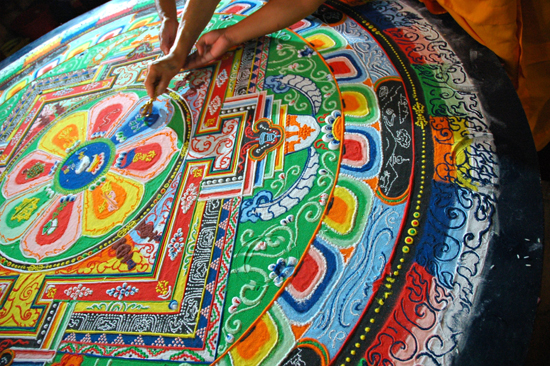Don’t Be Precious (with your ideas)
[This a chapter from The Dance of The Possible: the mostly honest, completely irreverent, guide to creativity]
Three magic words for people who create things are: don’t be precious.
Being precious means you’re behaving as if the draft, the sketch, the idea you’re working on is the most important thing in the history of the universe. It means you’ve lost perspective and can’t see the work objectively anymore. When you treat a work in progress too preciously, you trade your talents for fears. You become conservative, suppressing the courage required to make the tough choices that will resolve the work’s problems and let you finish. If you fear that your next decision will ruin the work, you are being precious.
When a young writer is struggling to finish a book, or a painter wrestling with an incomplete painting, wisdom would say “don’t be precious.” If you love your craft there are an infinity of projects in your future. There will be other chapters. There will be other canvases and other songs. Perfection is a prison and a self-made one. Whatever you’re making, it doesn’t have to be perfect. Perfection is an illusion.
Obsessing about every little choice is a sure fire way to prevent great work from happening. Try a bold choice. Put the beginning at the end, or the top at the bottom. Blow your work up into jagged pieces and put them back together. You might just find this opens doors you didn’t even know were there. If you’re too precious you miss the hundreds of big choices that might reveal the path to completion, or convince you the project is a puzzle that needs to be abandoned for a time. But if you spin your wheels faster and faster on smaller and smaller details, you’ll never move anywhere. You’ll never call anything finished, denying yourself the essential experience of looking back from a distance and learning from what you’ve already made.
Some Buddhist monks make mandalas, intricate paintings made from colored grains of sand. When completed the mandalas are destroyed. These monks make, and destroy, these wondrous works to remind themselves not to be too precious, and not only about their works of art, but about life itself. This isn’t an excuse not to work hard, or to not strive for greatness. Mandala’s take skill and patience to create. Instead it’s a recognition that while your work might mean everything to you in the moment, in the grand scheme of your career, your life, and the universe itself, it’s just another thing that will someday fade away.


Of course it is important to strive for greatness. You should care deeply about people and ideas that matter to you. To make good things requires intense effort and practice. There’s a long history of masters, from Michelangelo to Twyla Tharp to Kubrick (whose film 2001 is pictured above), who obsessed about the smallest details of their works and demanded the best from everyone who worked with them. In some ways they were very precious indeed. But they didn’t let those ambitions stop them from finishing their works: if they stayed stuck in their obsession for detail forever on a single project we wouldn’t know their names. Productive masters know how to be both intimate with and distant from their own work and we all need to learn the same flexibility.
It’s rarely discussed but all good makers leave a legacy of abandoned drafts, unfinished works, mediocre projects and failed ideas, work that enabled them to learn what they needed to finish the projects they are famous for. If your high standards, or self-loathing, is preventing your progress, don’t be precious about it. It takes hundreds of experiences with the cycle of starting, working, and finishing creative works before you have the talent to make finished things that match the grandeur of the ideas in your mind.
Say “don’t be precious” to yourself when you’re stuck. Let your obsession go, or blow it up into fun sized pieces and let the chips fall where they may. Move on, learn, and repeat. You’re a creator, which means you can make nothing into something whenever you want. There are infinite possible projects ahead in your career, but only if you move past the one you are making far too precious now.
[I learned about not being precious from the artist, and my friend, Teresa Brazen]


Very true.
If you look at the best selling authors, those who spent a career in writing, people like Arthur Clarke, Isaac Asimov in SciFi, you find they wrote hundreds of books. Only a few of those became classics, and sometimes after a long time.
The people who survive in the business are those who put out a lot of work, and let the public decide which they like best.
Ultimately, you can’t control how the public will react to your work. You can control your work: Put out the best you can, under the constraints you have, and keep working.
People wrongly assume that spending years working on the same thing will make it “perfect”. But the question is: Perfect for whom? English professors, art critics? Or the fee paying public, who don’t care about obtuse concepts of “perfection”, but rather how much the work entertained them?
People spend years working on the same book / painting etc, they forget the big picture. They never really become artists, because you are not an artist/author unless you finish your work and make it available. Trying to write the perfect book is also a form of procrastination.
As has been said by the wise ones: Yes, your first draft sucks. But finish it anyway.
This is an issue some grad students have when working on a dissertation. They act as if it is the most important thing they will ever do and it must be perfect (which does not bode well for one’s career). This mindset sometimes leads to delays and a pattern of behavior that can prevent them from earning tenure.
I also see this in couples saying their wedding is (was?) the best day of their life…seems to me that that puts a pale on one’s life together.
What’s interesting is that this advice could be applied to your life, not just your art.
It makes me feel better knowing that most great artists have a lot of unfinished work. I have at least 10 notebooks in my closet filled with notes, scribbles, sketches, and skematics for things I never made or finished.
I am reminded of the experiment where a pottery class was divided into two halves. The students in one half were judged on one, presumably perfect piece of pottery (alliteration not intended). The students in the other half were judged simply by the weight of all the pottery they produced in the course of the class. On average, those in the second group made better and more innovative pieces.
Thank you. Sage advice worth spreading.
That’s exactly what I needed to read. Right here. Right now. Thanks.
Iain Banks said you have to write a million duff words before you can write a good novel. I’ve done this and more so everything from here on is gonna be great. :)
It would be extremely painful for developers to act like Monks ;)
“Don’t be precious.”
YES!
-.- dats meh name boi